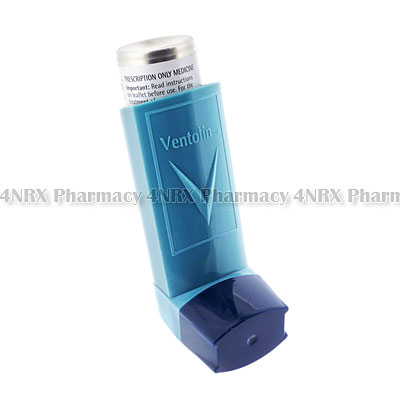 |
Home  Asthma Asthma  Ventolin (Albuterol Salbutamol) Ventolin (Albuterol Salbutamol) |
|
|||||||||
|
Ventolin (Albuterol Salbutamol)
What is Ventolin (Albuterol Salbutamol) used for? Ventolin (Albuterol Salbutamol) is used to treat and prevent bronchospasm in patients suffering from asthma and chronic obstructive pulmonary disease (COPD). It is also commonly used to prevent exercise induced breathing difficulties. This medication belongs to a class of drugs known as bronchodilators. It is proven to alleviate the symptoms of breathing difficulties by helping to open up the air passages to the lungs, which in turn helps to make it easier for the patient to breathe. How should I use Ventolin (Albuterol Salbutamol) ? Ventolin (Albuterol Salbutamol) is inhaled orally. To administer this medication, you should insert the provided inhaler in between the lips, and press down on the canister, while breathing in deeply, and hold your breath for 5 to 10 seconds. You may then exhale gently. If you are using this medication to prevent or treat symptoms, you may be directed to use it once every 4 to 6 hours. However, for those who are using it to prevent exercise induced breathing difficulties, it is normally used 30 minutes before exercise. It is important for all patients to consult their physician before using this medication so that the correct dosage required to treat their condition can be prescribed. What are the side effects of Ventolin (Albuterol Salbutamol) ? Patients may experience some side effects as a result of using Ventolin (Albuterol Salbutamol), including:
You should note that this medication may also cause some more serious side effects to occur. Consult your physician immediately if you notice an irregular heartbeat, chest pain or sudden weakness. Please Note Strictly follow all instructions provided to you by your physician or pharmacist while using Ventolin (Albuterol Salbutamol). Optimum and safe dosage can differ based on the patient and the condition being treated. As this medication may be unsafe for certain patients, it is essential you always inform your physician if you are pregnant or breastfeeding, as well as if you have any allergies, other illnesses, or ongoing health conditions, and if you are taking any other form of medication, supplements, or herbal products. Immediately seek emergency medical care if you have any allergic or hypersensitive reaction. Common signs of a reaction include hives, swelling, skin rashes, chest pains, as well as trouble breathing or swallowing. 




|
|||||||||||||||||